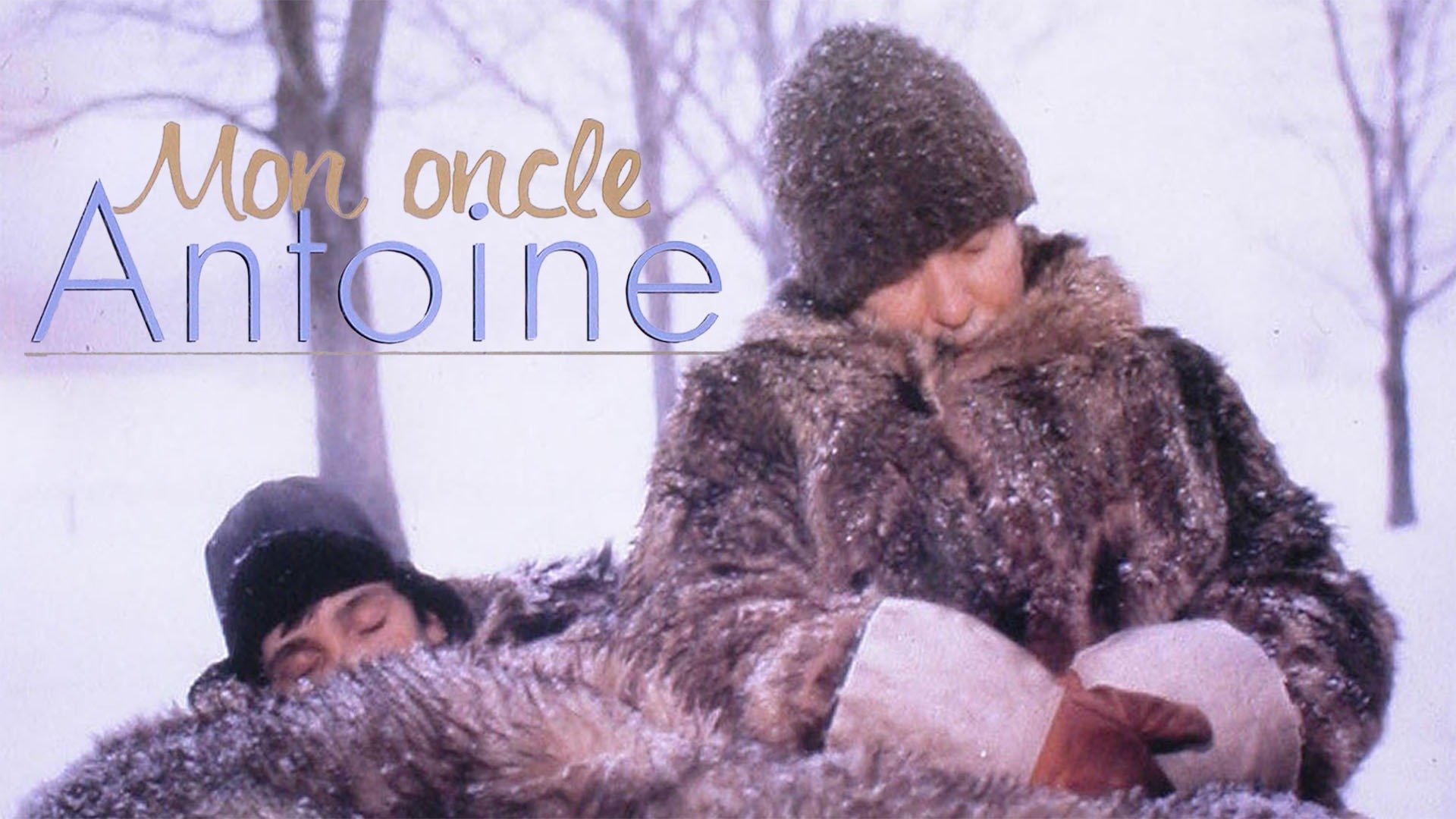
Released in 1971, “My Uncle Antoine” is a Canadian drama film directed by Claude Jutra. Set in a small village in Quebec during the 1940s, the movie revolves around a young boy named Benoit who spends his summer working at his uncle’s general store. As the story unfolds, Benoit witnesses the complexities of adult life and grapples with his own coming-of-age journey.
With its poignant storytelling and realistic portrayal of rural life, “My Uncle Antoine” has become a timeless classic in Canadian cinema. It garnered critical acclaim and won numerous awards, including the Prix de la critique at the Cannes Film Festival. The film’s compelling characters, stunning cinematography, and thought-provoking themes have resonated with audiences over the years, making it a must-watch for movie enthusiasts.
Key Takeaways:
- My Uncle Antoine is a timeless Canadian film that captures the essence of rural Quebec in the 1940s, exploring themes of love, loss, and the complexities of coming of age.
- Director Claude Jutra’s masterpiece, My Uncle Antoine, continues to inspire filmmakers and audiences worldwide with its authentic portrayal of Quebec’s cultural identity and its enduring emotional impact.
Quebec Classic:
My Uncle Antoine, also known as Mon Oncle Antoine, is a classic Quebecois film released in 1971.
Directed by Claude Jutra:
This masterpiece was directed by Claude Jutra, a renowned Canadian filmmaker.
Set in a Rural Mining Town:
The film is set in a rural mining town in Quebec during the 1940s.
The Coming-of-Age Story:
My Uncle Antoine revolves around the coming-of-age journey of a teenage boy named Benoit, who works at his uncle’s general store.
Cinematic Influence:
My Uncle Antoine is considered one of the most influential Canadian films of all time.
Critically Acclaimed:
The film received widespread critical acclaim and won numerous awards, including the Prix Léonard-Dauphinais for Best Canadian Film.
Reflective of Quebec Society:
My Uncle Antoine brilliantly captures the socio-economic and cultural realities of Quebec society during the post-WWII era.
Bittersweet Narrative:
The film blends elements of drama, comedy, and tragedy, resulting in a poignant and bittersweet narrative.
Shot in the Winter:
The movie was predominantly shot during the winter season, showcasing the stunning and harsh landscapes of rural Quebec.
Deep Exploration of Characters:
My Uncle Antoine delves into the complexities of its characters, depicting their hopes, dreams, and struggles.
The Contrast of Innocence and Experience:
The film explores the contrast between the innocence of youth and the harsh realities of adulthood.
Memorable Performances:
The cast delivers standout performances, including Jacques Gagnon as Benoit and Jean Duceppe as Antoine.
A Familiar Coming-of-Age Story:
My Uncle Antoine follows a familiar coming-of-age narrative, but it stands out due to its richly developed characters and authentic portrayal of the era.
Historical Significance:
The film serves as a valuable historical record, offering insights into the challenging lives of working-class individuals in rural Quebec.
Realism in Filmmaking:
Director Claude Jutra employed a realistic style of filmmaking, capturing the everyday lives of the characters with precision.
Minimalistic Approach:
The film’s minimalistic approach allows the audience to focus on the raw emotions and intimate moments of the characters.
Symbolism and Imagery:
Jutra skillfully utilizes symbolism and powerful imagery to enhance the storytelling and evoke strong emotions.
French-Canadian Cultural Identity:
My Uncle Antoine showcases the unique French-Canadian cultural identity and explores themes of language, religion, and tradition.
Exploration of Social Hierarchies:
The film delves into the complex social hierarchies prevalent in small communities, where power dynamics and class differences shape relationships.
Authentic Period Details:
The movie pays meticulous attention to period details, accurately recreating the fashion, architecture, and social norms of the 1940s.
Timeless Theme:
My Uncle Antoine addresses universal themes such as love, loss, regret, and the search for identity, making it relatable to audiences irrespective of time and place.
Artistic Use of Silence:
The film masterfully uses moments of silence to convey powerful emotions and imbue scenes with deeper meanings.
Rich Soundtrack:
The hauntingly beautiful soundtrack complements the evocative visuals, enhancing the overall cinematic experience.
Pioneering Canadian Cinema:
My Uncle Antoine played a pivotal role in establishing Canadian cinema on the global stage, earning it a place of pride in film history.
Impact on Canadian Filmmakers:
The film inspired a new generation of Canadian filmmakers who were drawn to its authenticity, storytelling, and humanistic approach.
International Acclaim:
My Uncle Antoine was not only popular in Quebec but also gained recognition internationally, cementing its status as a cinematic gem.
Preservation and Restoration:
Efforts have been made to preserve and restore the film to ensure its availability for future generations to appreciate.
Cultural Legacy:
My Uncle Antoine continues to be celebrated as a vital part of Quebec’s cultural heritage, showcasing the captivating beauty and complexity of the region.
Appreciation for Quebec Filmmaking:
The film helped showcase the talent and potential of Quebec filmmakers, paving the way for the growth of the industry.
A Time Capsule:
My Uncle Antoine provides viewers with a glimpse into a bygone era, preserving the memory of a pivotal time in Quebec’s history.
Emotional Impact:
The film resonates emotionally with audiences, provoking reflection on themes of identity, family, and the passage of time.
International Film Festivals:
My Uncle Antoine has been showcased at numerous international film festivals, further spreading its influence and reaching wider audiences.
A Remastered Version:
A restored and remastered version of the film was released in 2015, allowing a new generation to discover its brilliance.
Inspiring Filmmakers:
My Uncle Antoine has served as a source of inspiration for many aspiring filmmakers, encouraging them to explore their own cultural narratives.
Timeless Relevance:
Even after several decades, My Uncle Antoine remains as culturally significant and relevant as ever, proving the enduring power of great storytelling.
Conclusion
In conclusion, the movie “My Uncle Antoine” is a cinematic masterpiece that explores the complexities of human emotions and the impact of societal norms. With its captivating storyline, brilliant performances, and stunning cinematography, it has stood the test of time and cemented its place in film history. From the evocative portrayal of rural life in Quebec to the profound examination of personal growth and self-discovery, this film offers a unique and thought-provoking viewing experience. Whether you are a fan of Canadian cinema or simply appreciate compelling storytelling, “My Uncle Antoine” is a must-watch film that will leave a lasting impression.
FAQs
Q: When was the movie “My Uncle Antoine” released?
A: “My Uncle Antoine” was released in 1971.
Q: What is the movie’s genre?
A: The movie falls under the genres of drama and coming-of-age.
Q: Who directed “My Uncle Antoine”?
A: The movie was directed by Claude Jutra.
Q: Is the movie based on a true story?
A: No, the movie is not based on a true story. However, it is inspired by the director’s own experiences growing up in rural Quebec.
Q: Are there any notable awards or nominations for “My Uncle Antoine”?
A: Yes, the movie received critical acclaim and won several awards, including the Canadian Film Award for Best Feature Film.
Q: Can you recommend similar movies to “My Uncle Antoine”?
A: If you enjoyed “My Uncle Antoine,” you might also like “The Sweet Hereafter” directed by Atom Egoyan, or “Monsieur Lazhar” directed by Philippe Falardeau.
Was this page helpful?
Our commitment to delivering trustworthy and engaging content is at the heart of what we do. Each fact on our site is contributed by real users like you, bringing a wealth of diverse insights and information. To ensure the highest standards of accuracy and reliability, our dedicated editors meticulously review each submission. This process guarantees that the facts we share are not only fascinating but also credible. Trust in our commitment to quality and authenticity as you explore and learn with us.


